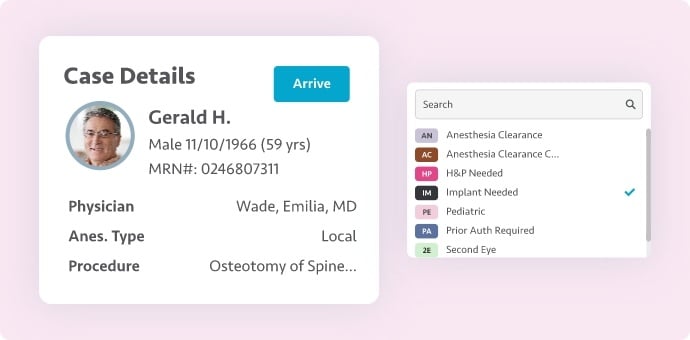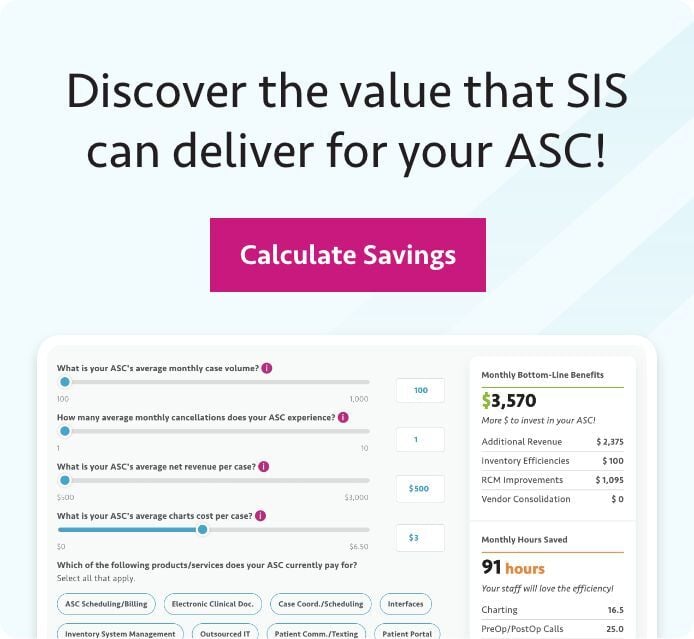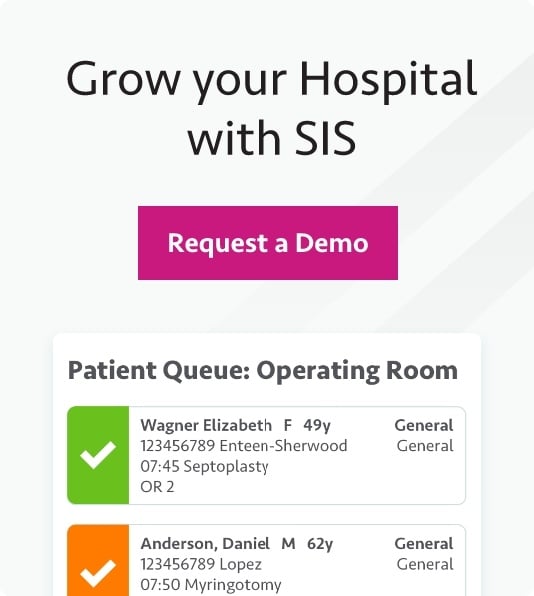Avoid costly coding errors by following these 10 tips to improve your coding.
The consequences of poor ambulatory surgery center coding can be severe. Inaccurate coding can contribute to lost revenue, unnecessary expenses, insurance audits, and angry patients. It can even trigger fraud investigations. Limiting the number of ASC coding errors and quickly addressing those that occur are critical to a high-performing, compliant revenue cycle.
To learn how to improve your ASC's coding performance, watch our ASC Coding Quirks: The Rules You Need to Know webinar on-demand. You can also follow these 10 ASC coding best practices.
1. Maintain open lines of communication
ASC coders are more likely to succeed when they remain informed and current about all the changes within their ASC that will affect their work. This includes developments concerning payers, procedures, physicians, specialties, and surgical technology.
ASC leadership should ensure their coders receive this information in a timely manner. In addition, coders should feel comfortable speaking with fellow business office team members and clinical team members, including physicians, when they have questions about matters that can influence how they code. Strong communication between ASC coders and other team members will contribute to cleaner claims and timelier payments.
2. Educate ASC physicians on their role in correct coding
ASC physicians who better understand the role they play in coding are more likely to help improve coding accuracy and performance. This includes completing detailed operative reports, staying current on documentation changes associated with their procedures that can affect coding, and, as noted in the previous best practice, demonstrating a willingness to speak with coders whenever there are questions concerning procedures and documentation. Educating physicians about their roles and responsibilities can make a significant difference in a coder's ability to perform accurate ASC coding.
3. Invest in your ASC's coders
Spending some money to provide your coding staff with education and training can go a long way. When coders receive regular education that helps them remain current with the latest coding rules and recommendations, they are more likely to make fewer mistakes and increase their productivity.
Examples of such investments include sending ASC coders to conferences, purchasing coding webinars, subscribing to coding publications, and financially supporting coders who want to pursue certifications.
4. Make sound ASC coding hiring decisions
Not all coding is the same. ASC coding has its own rules and quirks (like those covered in our ASC Coding Quirks webinar). When hiring, don't only look for medical coding experience, but target ASC-specific coding experience.
A coder without ambulatory surgery center experience can be trained on how to code ASC procedures. It is imperative for surgery centers that hire coders with experience in other industries but who lack ASC experience to make the investments necessary to support such training and education.
5. Don't hope for ASC coding problems to fix themselves
While some ASC coding errors are one-off mistakes, many coding errors become repetitive. This can lead to ongoing undercoding and associated loss of revenue, a steady flow of denials, or overcoding, which may result in payers recouping payments or even the triggering of fraud investigations. Identifying and fixing ASC coding problems fast is essential to consistently receiving proper payments.
Whenever your ASC experiences a denial, review it carefully and determine the cause. If the denial is associated with a coding error, educate coding staff on what occurred and what should happen going forward to avoid the mistake from occurring again. Even if the error is associated with an individual team member, there is no harm in educating the entire coding staff on the mistake.
Conducting routine audits can help detect errors, including those missed by payers (thus far). If an audit identifies mistakes, provide relevant education.
6. Set coder performance goals
Coding performance is generally easy to measure. It can include measuring a coder's participation in the submission of clean claims (i.e., clean claims percentage) and accuracy associated with coding a specific diagnosis or CPT code.
Setting coder performance goals can serve multiple purposes. These include providing a transparent approach to performance assessment, motivating coders to improve their performance, and establishing a means of rewarding coders for their performance.
ASC coding performance goals can be associated with quality as well as quantity since coders must complete their coding on time. Performance goals can also come in different forms, such as improvement goals for coders who are learning, and "win-the-contest" goals associated with top performers.
7. Develop a plan for ASC coder absences
ASC coders, like all staff members, take time off. This is sometimes planned and sometimes unplanned. Surgery centers need a process for ensuring coding is completed during coder absences — those that are short and long term. Failure to account for such absences will delay billing and collections and could lead to a substantial coding backlog.
For a short-term coder absence, solutions include bringing in part-time assistance, outsourcing some coding work, or tasking other in-house coders to cover the work. Long-term absences are more likely to require a combination of these solutions.
8. Manage ASC coder workload during busier and growth periods
ASCs rarely perform the same number and type of procedures week in and week out. There are times when volume goes up and times when volume goes down. In addition, successful ASCs often experience growth. Smaller growth may mean more volume of existing procedures or the addition of some new procedures. More significant growth may mean new specialties and many new procedures. In any of these scenarios, ASCs will want flexibility with their coders' work schedules. This will help ensure coding is completed consistently and without the need for much or any overtime pay.
ASCs should be as transparent as possible concerning coder scheduling. While surprises do come up, coders who are kept informed about their upcoming schedule and immediately told of any changes — as far in advance as possible — are more likely to remain satisfied with their work and less likely to push back against the occasional surprise.
9. Undergo annual third-party ASC coding assessment
An annual coding assessment by a third party can serve multiple purposes. Most importantly, such an assessment — preferably performed by an ASC coding expert — can identify missed errors that cause an ASC to leave money on the table or result in overpayments. In addition, the individual or company performing the assessment may be able to share best practices and provide education on recent coding rule changes that may have been missed by the ASC.
While internal assessments are worthwhile and should be completed on an ongoing basis, a third party allows an ASC to benefit from an unbiased perspective and review of coding performance, as well as knowledge that may be presently lacking internally. This assessment is an investment, but it's one that's worthwhile as findings can often lead to improvements that more than cover the cost. Even if the assessment turns up nothing noteworthy, there's great value in receiving confirmation of strong ASC coding staff performance.
10. Weigh the value of ASC revenue cycle management outsourcing
While ASCs can outsource numerous aspects of their operations these days, coding is one of the most common to be outsourced. Companies like SIS, with its Revenue Cycle Services, provide a wide range of ASC revenue cycle management services, including coding.
Outsourcing coding can help deliver substantial benefits to ASCs, including improvement in clean claims percentage; timely, accurate collections; reductions in denials and payment delays; and cost savings (e.g., maintaining staffing, hiring/recruiting staff, allocation of physical space). Outsourcing should not just be a consideration for ASCs struggling with their coding. It's also a great solution to be leveraged by new ASCs, mature ASCs, successful ASCs, and ASCs undergoing significant growth.


























